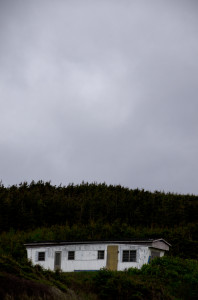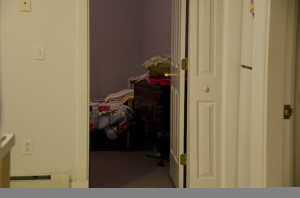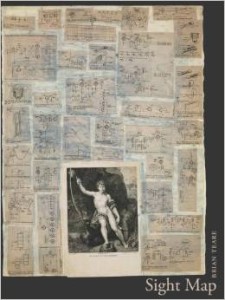THE RICHNESS OF EMBARRASSMENT
I.
Film often seems sterile compared to theatre—everything is frozen, edited, already embalmed into celluloid. It is the past, the dead past, brought back to life by a projection: in the cinema, we literally see specters. Every time the light beams through the reel, the image fades a little. The theatre, by contrast, is sloppy, immediate, alive. The rougher its edges, the more its edges shine.
I’ve long found a perverse pleasure in going to low-budget, under-rehearsed black box plays where the actors generally exhibit more dedication than talent. I like to see the whole cast muddle through the course of hazards that is live theatre. Set malfunctions, misplaced props, light or sound flubs, and the inevitable dropped lines of dialogue often give me a more exquisite, a more visceral delight than any film—or, for that matter, any glamorous, smooth-running high budget Broadway production—ever could. I wonder whether many of us secretly go to the theatre hoping that something screws up. It’s the threat (the thrill) of failure that makes live theatre a tantalizing high-wire act no matter how flatfooted the production values may be.
I remember, for example, the first time I saw a production of Lady Windemere’s Fan as a teenager in London. The actress playing Lady Windemere fumbled with her fan, and Lord Darlington deadpanned, “You have dropped your fan, Lady Windemere,” handing it back to her. I exulted, mistakenly supposing that I had witnessed a bit of ad libbing designed to cover up a slight miscue. Of course, Wilde, our great grand daddy of queerdom, had written this little tête-a-tête into his script. My savvier companion that evening quickly dispelled my giddiness by letting me know that the whole routine of the fan had been quite deliberate: to my chagrin, the actress’s “mistake” turned out to be only an indication of my own naiveté.
As I later learned, Victorian courtship often proceeded according to a “language of the fan,” a system of symbolic gestures that allowed heterosexual paramours to communicate at a time when women’s expression of desire was greatly curtailed. Wilde, though, most likely used the language of the fan as a metaphor for the coded language of gay subculture, such as polari (gay slang) and the fin de siècle’s use of colored scarves, a predecessor of contemporary hanky code (or flagging), whereby one signaled by a fabric’s colors, patterns, and sartorial position one’s sexual preferences and fetishes.
But just as in any language, nuance can be lost in the noise. The language of the fan may be subject to miscues—was the fan dropped on purpose or by accident? Similarly, there is no definitive consensus about the hanky code today, though it continues to add new shades of meaning. Subtleties and subtexts, even to the initiated, are fertile ground for misunderstandings; the more elaborate the system, the more likely one reads too much into happenstance. But without happenstance, the vagaries of desire also fail to develop along their unpredictable lines. Poetry itself is often an implicit confession of this linguistic embarrassment of riches.
Which is to say, shit happens. Contingencies always outstrip our ability to entirely control meaning. Language is brimming with accidents—is made up of nothing but. Sign and signified, intention and embodiment, are forever just a touch askew. It is that disjunction between the ideal and the incarnation, the effort and the affect, which my love for bungled, low-budget theatre helps me register as a condition to be embraced.
However, my abject spectatorial pleasure in shoddy theatre is perhaps still more perverse because I enjoy identifying with the performers, the more inept the better. I once supposed my tendencies to value such theatre resulted from the fact that bad naturalistic actors were simply good Brechtian ones, and that I preferred a dramaturgy of the geste in which one was never jeopardized in believing illusionistic spells; or, that my enjoyment was a form of camp melodrama, in which I appreciated the earnest overacting because it foregrounded that the actors’ portrayal—including their emotions and identities—were simply put-ons. These are both close, but miss some shade of the truth.
In fact, I’m embarrassed for the actors and for myself pretending I’m enjoying their performance (whether ironically or not). I’m embarrassed, that is, by my own bad acting, my feigned response of pleasure so that I don’t embarrass the actors by my lack of enjoyment at their work. Moreover, I crave such an experience of embarrassment, which is compounded in many cases due to the small size of the audience. The actor can look me dead in the eye, front row center, as I stare back both brazen and abashed. We confront each other, one under the harsh glare of gels, the other at the edge of darkness—at the borderland of public and private—we confront each other about the mutual inadequacy of our resources, breathing the dusty air of an unkempt stage. Just as I recognize how the actor fails in a performative attempt to portray a character, the actor helps me recognize how I also fail in my own social performances.
This failure embarrasses me even as it gives me pleasure. Some part of the pleasure, I suspect, results from a sidelong acknowledgment of my own alienation of labor, specifically, the labor of performing a self. In this way, the embarrassment feels similar to the embarrassment that is cultivated by drag queens of a bygone era when they’d pick out—and pick on—the straightest boy in the audience. While the exchange paid homage to the queen’s bitchy wit, it could also produce a masochistic pleasure in its target: one had been deemed worthy of the queen’s attention. The uncertain twinge of doubt and frisson thereby evoked in the target, mixing degradation and attraction, produced the emotional richness of this cruel form of theatre. The poverty, rather than the polish, of any minor art gives that art the freedom to communicate more intimately, even as it helps create the counterpublic which such artworks address. Drag is a mask that lets the truth of the mask show through. Being embarrassed by a queen, then, allows the boy who’s been playfully berated “own” the masquerade of keeping up appearances, regardless of whether he is actually gay, straight, or otherwise. His embarrassment becomes inseparable from the pleasure he feels in his ambivalence about the role and his complicity in the larger spectacle of which he is now thoroughly involved.
II.
Such sweet humiliation, though not uncommon in live theatre where two individuals confront each other across the fourth wall, is relatively rare in the darkened recesses of the movie house, a space which seems designed to allow bodies to come in contact while eyes can sham being fixed on the screen. Rarer still is such embarrassment caused by what’s on the screen. The intimacy of film has its limits, and although we may sometimes melt into the projected image, our tacit understanding of our distance from the flickering screen brings with it a reassurance that the medium cannot puncture our self-regard. Ultimately, the screen cannot look back even when the actor on it faces out to the camera, the darkened movie house invites anonymity, and thus we usually feel safe in the cinema’s amniotic cocoon.
However, if any movie can conjure such feelings of embarrassment, even when viewed alone, it’s Pier Paolo Pasolini’s infamous Saló, or 120 Days of Sodom (1975). The film recounts a group of fascists who systematically ravage and molest a group of teens. It’s all supposedly an allegory for a descent into a Dantean/Sadean hell. Squirming in your seat, you flinch to look away but compulsively rubberneck the scenes of coprophagia and torture. There’s probably no more apt description than to say the film rapes your eyeballs.
As elegantly composed as they are brutal, the endless scenes of sadism and depravity contaminate the viewer; by continuing to watch, the audience becomes trapped by the film much like the bevy of kidnapped adolescents who’ve been sexually enslaved by the fascist court figures. You vicariously experience the torture of these victims—because the images themselves are torture. Confronting us with scatological atrocities, Pasolini declares the grand edifices of civilization have been built upon its sewers. The film forces us to pull a face (of horror and disgust) yet thereby exposes the shit-eating grin of the authorities.
Crucially, however, Pasolini ends his film by turning the tables. The screen image narrows to the viewpoint of the fascist voyeurs who peer through binoculars. We look at the violence through the round scopic hole that is at once eye and camera, consuming mouth and expelling anus. Any audience member who has lasted this long watching the film has been complicit with the fascists orchestrating the spectacle of unrelenting violence. The true horror of the film occurs when the pleasure of the viewer has become synonymous with the pleasure of the voyeurs, indicting the audience for the horrors they behold. The film collapses representation and reality, since to see is equivalent to collaborating with the violence depicted.
When the camera cuts to the voyeur’s room, the mise-en-scène displays walls lined with cubist artworks, further linking the viewers of this art film with the voyeurs of the “artful” torture: like cubist paintings, the film cuts up and rearranges bodies on at least two levels—first, the production of the film requires cutting and suturing and, second, the scenes of torture involve bodies branded, beaten, twisted, and punctured. Yet, the images have ultimately branded us, the audience, through their unforgettable violence.
The analogy between the filmic process and the tormented bodies redounds when the final scene culminates when a tongue is ripped from a boys’ mouth and his eye is scooped out. Like the iconic image of a razor slicing through an eyeball in Un Chien Andalou, this graphic scene in Saló acts to register the painfulness of watching the episode at the same time that it demonstrates the eye’s appetite for such images. The destruction of the eye could be read as an analogy for the destruction of the camera, and hence the film gesturing toward what is unrepresentable on film, the remainder that escapes any cinematic image. The lustful tyrant is discovered to be the eye itself, not only the eyes of the fascists, but also the eyes of the audience looking over their shoulders. Even as it offends us, the film incites our scopophilia; yet, if we think of the eye as a voracious mouth consuming icons, we are left to wonder what would the nauseated eye be able to vomit?
If the eye offends thee, pluck it out. Such a moral apothegm has been ironically inverted in Pasolini’s vision of hell. The camera angle shows a halo surrounding one of the voyeurs who peers through the binoculars, alluding to Genet’s saint-like criminals. In the same moment, we’ve been transformed into the fascists, who earlier in the film have inspected the boys’ assholes, since the hole in which the scene has been framed resembles a sphincter. Yet, by the same logic, the film we have been consuming is excrement, elegant yet noxious waste, and so we are also its victims. The audience, too, is symbolically made to eat the feces (the film) served up on the stainless white saucers of its elegant décor. Both viewpoints are simultaneously present, victim and voyeur; the dialectic of fascism—master and slave—is one that must be waged within the viewer’s own conscience.
Nonetheless, Maurizio Viano writes about the reception of the film among an audience of gay men in a San Francisco movie house:
As they had obviously seen Saló a few times, they were able to see ketchup and chocolate instead of blood and excrement. They knew some of its infamous lines by heart (the Presidente’s jokes) and they laughed. I felt like I was watching another rerun of the Rocky Horror Picture Show.
Viano confesses his own “inability to derive theoretical insight” from his experiences of the film’s reception. Some might argue that giving Saló the camp treatment means that such viewers see through the film rather than seeing it. The disillusionment of the camp response, however, points to the problematic position in which the film situates its audience. One cannot turn a blind eye to corruption, yet, Saló hints, one also cannot witness corruption without being contaminated by it.
One way out of this dilemma is the response Viano describes. Such a reaction is succinctly captured by a joke Kurt Vonnegut once made, which goes something like this: a boy’s ogling a Playboy and says, “Hehe, mister, get a load of this naked lady.” And Vonnegut says, “Boy, that’s not a naked lady—that’s a picture.” By keeping clear the distinction between reality and representation, in other words, we can resist the tyranny that the image might subject us to, thereby reasserting our own individual power to read and consume images despite the coercion of how images have been framed for us.
Matthew Tinckom writes, in a similar vein about John Water’s trash aesthetic, that:
Cult viewing emerges as a form of labor, or more specifically work-as-play, by spectators both to rethink the history of cinema that gives rise to a moment of cult reception and to reorder the value codings of the industries of cinema.
Such cult spectators use their awareness of history in order to re-invest the film product with values contrary to the ones in which it has been packaged by the agents of production and interpreted by consumerist society, enabling them not only to rewrite the film itself but also the historical narratives of which it forms a part.
Likewise, an analysis of Saló’s reception in the San Francisco movie house might begin with the problem of identification that the film poses. If the heteronormative spectator is ultimately self-condemned by the film’s scopophilic logic, the queer spectator may likewise be frustrated in identifying with the fascists. Fascist are bad, tout court. Yet, the same might have been said about sodomitic practices. By this analogy, the fascists’ outré predilections can be read as a figure for BDSM, scat, and other “unacceptable” or deviant sexual practices. Perhaps, the real tyrant is desire itself. Spectators may gain power over their desires, however, by willfully suspending their belief in the image, which is, after all, not self-evident. It is only an illusion. The film is re-appropriated as a feast for the eyes, as Viano’s description emphasizes in its mention of ketchup and chocolate. One might well imagine a queer reception in which the audience—like one at an unruly midnight showing of Rocky—dances in the aisles along with the triumphant fascists in the movie’s very last moment. If we can bring ourselves to participate in the “bad” pleasure of the fascists on screen, perhaps it’s because we’ve ironically started to free ourselves from the false pieties and iron-clad authority that constitutes our culture’s moral dichotomies.
III.
At almost the same time as Saló was released, Rainer Werner Fassbinder attempted something similar with his absurdist black comedy Satan’s Brew (1976). Fassbinder’s film raises the question of its own reception from the very first image, an epigraph from Artaud which praises heathens for their inhumanity—a quality that Artaud claims links them to the godhead. The heathen who obeys a different moral code activates reserves of energy by opposing social conventions, and that vital energy just is what we mean when we proclaim a divinity.
The film is based in part on the tetralogy of novels by Montherlant, The Girls, which Philip Larkin once called “both maddening and exhilarating, preposterous and acute, a celebration of the egotistical sublime and a mockery of it, a satire on women that is also an exposure of men, with a hero, who, even as we reject him as make-believe, settles ever deeper into our consciousness.” The same may be said for Fassbinder’s film, which a reviewer for the New York Times once deemed a “sicko sitcom.” It exposes the anarchic, choplogic discourse of capitalist so-called “normality” that underlies the familial sitcom narrative, as Satan’s Brew tells the story of a downtrodden poet and patriarch, Walter Kranz, who concocts various schemes to scrounge up a modicum of both money and self-respect, which become conflicting goals.
At first glance, of course, money might seem almost synonymous with self-respect for someone, like Walter, who has a decidedly petite bourgeois mindset. Nonetheless, the film explodes the terms of capital—it acknowledges that money debases one’s self-respect due to its reduction of all humanistic relations to their exchange value. The first extended scene, for example, shows Walter’s humiliation in trying to get an advance from his publisher. After this failure, Walter sexual attacks an older lady. Initially, this bewildering act appears as Walter’s way to lash out against the bureaucratized machine that holds him captive. When looking through the lady’s drawer, a dildo and a gun lie side by side. The equivalence of sex and assault is established: one might even conclude that the culture industry has “prostituted” Walter’s mind much as he assaults this hapless woman’s body.
Walter spits upon her and gags her on the pistol. Bizarrely, she then writhes in ecstasy as she writes him a check. We realize that Walter has committed neither rape nor a revolutionary act. He has been debased into being a gigolo. His sadistic pleasure likely results only from the money he earns, just as the rich matron’s erotic investment comes from the money she gives away. He next uses the gun to shoot her, disturbing our interpretation of the events once again. To “shoot” the gun not only replaces the sexual climax that the dildo may have accomplished, it also implies the camera’s representational violence in shooting the scene. The pinchbeck quality of the film’s set and costumes along with the sweaty glare of the lighting design seem at once theatrical and mundane—they help to foreground the reality of the actors spitting on each other and awkwardly exposing themselves, and hence the shooting of the film—in which we see the deluded woman die—feels uncomfortably like the director shooting at the audience, if only just his wad. There is, to be sure, something grossly masturbatory about the scene; yet, the very tawdriness of the film positions the audience as the matron who financially supported the shoot.
Later in the film, Walter’s profession as a poet leads him down another peculiar mercenary path, as he inculcates a cult of hero-worship by “becoming” the poet Stefan George, complete with a circle of admiring boys. Likewise, everything about Walter’s reenactment of George’s mythology is cheap and chintzy, including Walter’s failed attempt to consummate his affair with a gay stud he encounters in a lavatory. Ironically, Walter also gains an idolizer, Miss Hackenbush, he did not seek, a near-sighted desk jockey who is literally all eyes. Walter allows his mentally disabled brother to spit eggs in her face. Yet Miss Hackenbush appears to enjoy the degradation. Spitting the eggs is metonymically related to spitting up, or vomiting on her, the ne plus ultra of bad taste. At the same time, the fact that the brother ejects eggs (rather than sperm) creates a queer “facial,” as well, given the context of the brother’s desire to sleep with the many whores that Walter welcomes into their house.
Walter’s lone fan plays bootlicker to the poet in the delusion that Walter embodies the Übermensch, exults in any humiliation she receives at his hands as evidence of his inborn superiority. Through this relationship Fassbinder is, in part, poking fun at himself as the pretentiously poetic cult filmmaker, especially seeing how Kurt Raab, the actor playing Walter Kranz, bears an oblique likeness to the somewhat chubby and disheveled director. In the process, Fassbinder is also pointedly lampooning the short-sighted cult audience who’d lick his boots.
Throughout the film, Walter’s brother plays with his collection of dead flies; Walter quips, “He tries to fuck his flies, but without success so far, I think.” The brother attempts to mate the flies (or mate with them, perhaps). However, the brother’s ill-fated social engineering only kills them off, and thus, the brother, too, is a failed fascist, an inchling dictator standing over his barely twitching multitudes—a literal lord of the flies.
Amid such absurd narrative cul-de-sacs, Walter’s beleaguered wife and demented brother repeatedly screech at Walter, a response that, given the impossibility of their situation, somehow seems both affected and affectless, a meaningless cry that signifies that meaning itself verges on cacophony just as Walter’s most poignant poems end up being Dada doggerel.
Overarching all these putdowns and spaz outs, Andrew Grossman observes, the slur of “fascist” becomes a “catch-all epithet.” Throughout the film, the rejection of capitalistic values leads to fascism, on the one hand, or terroristic revolution, on the other—a distinction that quickly collapses. Yet, if everything is fascist, then fascism loses its definition and import. The poet Walter Krantz, despairing over the emptiness of such words, decides to prostitute himself in yet another form by selling out to write sensationalist drivel. His heroism is revealed as imposture, and his timid, somewhat lower-class family appears to mark Walter, too, as sub-average. Miss Hackenbush can no longer view Walter as a transcendental poet—he’s just one more schlub from a dull suburban background. She spits on him when he’s down, and Walter savors the moment. He concludes, with poetic justice, that his humiliation now is greater than hers could have ever been, gaining a perverse superiority over her once again.
The radical alienation of Walter Kranz nevertheless manages to upend its own dead ends. The resolution of the story overturns the on-going, faux-noir motif of Walter’s status as a suspect in the murder of the old rich matron. The rich matron, it turns out, is alive and well after all—the pistol had shot blanks and fake blood. The cinematic ruse is revealed. The gun was a cheap gimmick. Likewise, the film suggests, society is held up by theatrical props: even the dead fail to perform their assigned roles. One is both abuser and abused, and the interchangeability of such roles seems to place society in a holding pattern. In the last scene, everyone gleefully kicks the demented brother, who himself runs away to pluck another dead fly.
The film’s parallel between death as play-acting and death as a field of flies gone belly up seems to undermine any insuperably fixed moral categories. The film mercilessly reduces its characters to the increasingly trivial scripts they repeat: the brother curates his collection of flies in a cup that runneth over, Walter play-acts as Stefan George, Miss Hackenbush dutifully rehearses her role as a footstool, the whores perform on cue, and the various corporate suits deliver their (bottom) lines. Furthermore, in the context of the ubiquitously uttered slur of “fascist,” the brother’s cup of flies seems conspicuously likened to the mass graves created by the Nazis. Fassbinder’s film thereby implies that even the holocaust depends on its continual restaging if it is to have any meaning. The restaging, in fact, is what affords the holocaust meaning as an exceptional event, for otherwise its unprecedented violence would be absorbed into the more numbingly routine violence of daily, historical life.
When re-staged as a kind of script, even the holocaust requires a degree of artifice. The form that artifice takes, in turn, is shaped by the ineluctable forces of capitalism, which the film shows are themselves often a brutal form of objectification. The characters each behave as little animatronic SS officers in an extermination camp museum. In trying to combat dehumanization, they’ve turned themselves into robots. In this way, Fassbinder’s film suggests that the mechanisms by which we remember the holocaust—and maintain it as exceptional—may extend nascent structures of domination and submission. Ultimately, the film asks, how can German culture memorialize the death of millions so that they are not forgotten without also reiterating latent, systemic violence through the traumatic iteration of such memory?
IV.
Fassbinder and Pasolini aren’t denying the holocaust—they are deconstructing it. By doing so, they don’t allow us, the audience, to take any readymade stance. Invoking the holocaust, after all, is often used as a bromide for portraying a situation in stark and decisive moral polarities. These directors do just the opposite. In order to reexamine the underlying dynamics of violence, they force us out of our all-too-easy assumptions. Displacing those assumptions can itself be a violent process, and neither Pasolini nor Fassbinder shy away.
Watching these two films, we are implicated in the violence even if we would identify with the victims since there are no innocents, certainly not ourselves. But we also can’t—at least not without humiliation—identify with the perpetrators. Indeed, the binary between victim and aggressor gets blurred by both movies. There is no stance from which it is comfortable to view these films. That, I take it, is their point.
Our comfort zones act as the covert scaffolding upon which the rest of our judgments and intellectual pronouncements are built. To dislodge our most cherished certainties, whatever they may be, requires that we reconfigure the affects through which we comport ourselves and question our basic visceral reactions. What gives us pleasure? What do we fear? What makes us disgusted? The eyes dilate, the pulse races, or the throat retches before we’ve had time to cognize a situation. And yet, it doesn’t have to be this way: what one person enjoys might cause another to get sick. Corporeal responses do not necessarily carry moral weight.
There is no human condition—only different social conditioning. This is a bullet I bite, instead of my tongue.
There is nothing that can be deemed natural, no part of one that is essential, no indisputable values, no core of ennobling decency. There is only a radical contingency from which we collectively create, not freely but both with and against the available signs and tools.
Queerness, besides being many other things, is the swerve away from accepted meanings and desires, meanings and desires which frequently have been imposed by subtle daily coercion—the myriad and often unnoticed premises that guide both individual and institutional decisions, in which the very corpus of so-called human nature has been twisted to fit on a tortuous wheel like the Vitruvian man, so that a single ideal comes to represent untold diversity. These two films, by contrast, queer us by rending what we might have presumed to be our “natural” understandings and appetites askew.
Frankly, they are embarrassing—they are embarrassing to watch and they are embarrassing to talk about here. I hesitate, however, to claim that the embarrassment I feel watching these films is connected to my negligence toward any social responsibilities, any fateful duty I have to fulfil a worthwhile role in some community. The films are not cathartic—their spectacle does not help me emit my anti-social feelings.
Rather, they induce me to relish my anti-social feelings, to exult in my embarrassments; they stir up disgusting passions while cultivating my palate for further queasiness. The films help me acquire a taste for nausea—the taste of what the body would otherwise reject. The humiliation brought on by these films is neither a purgative to induce me to excrete ugly emotions nor a platform from which I might envision an improved state by recognizing my potential errors and poisons. No. Watching these films, I feel forced to swallow the vile acid of my own words.
--------------------------
Will Cordeiro received his MFA and Ph.D. from Cornell University. His recent work appears or is forthcoming in A Clean, Well-Lighted Place, burnt district, Cortland Review, Drunken Boat, Fiction Southeast, Phoebe, Potomac Review, and elsewhere. He lives in Flagstaff, Arizona, where he teaches in the Honors Program at Northern Arizona University.








